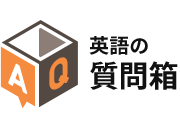Continuing question of “who ・・・ who ・・・”
Thanks for your explanation and GT, I have the feeling that it’s better to modify the sentence from ① to ② to understand the meaning, although I’m not sure.
① “・・・Republican Party in his image, his endorsement in competitive races ultimately coming to define who conservative voters supported and who they didn't.”
② “・・・Republican Party in his image. And his endorsement in competitive races ultimately coming to define who conservative voters supported and who they didn't.”
回答
(1) is correct. (2) is incorrect because it is not a complete sentence. The author of the original article used independent participle construction (独立分詞構文) because the subject was different from the main clause.
Let’s take a look at some examples.
I gave my daughter a piece of chocolate, relieving her anxiety about the test.
The above example has participle construction (分詞構文). We can rewrite it without using the present participle (“relieving”) as follows.
I gave my daughter a piece of chocolate, and I relieved her anxiety about the test.
In this case, the subject for “relieved” is the same as the subject for “gave.”
How about this sentence?
She was happy, her anxiety melting just like the chocolate in her mouth.
The above example has participle construction. We can rewrite it without using the present participle (“melting”) as follows.
She was happy as her anxiety melted just like the chocolate in her mouth.
In this case, the subject for “melted” is different from the subject for “was.” To use participle construction, we put the subject (“her anxiety”) in front of the present participle (“melting”). This form is called independent participle construction (独立分詞構文).
Now, let’s go back to your question.
Trump sought to shape the Republican Party in his image, his endorsement in competitive races ultimately coming to define who conservative voters supported and who they didn't.
The above sentence has participle construction. We can rewrite it without using the present participle (“coming”) as follows.
Trump sought to shape the Republican Party in his image, and his endorsement in competitive races ultimately came to define who conservative voters supported and who they didn't.
Explanations on participle construction (分詞構文) are available at many websites.
https://知っ得袋.biz/2426.html
At the height of his influence entering the 2022 GOP primaries,
Trump sought to shape the Republican Party in his image,
his endorsement in competitive races ultimately coming to define, who conservative voters supported and who they didn't.
prepositional phrase: At the height of his influence entering the 2022 GOP primaries,
subject: Trump.
verb: :sought to.
object-1: shape the Republican Party in his image,
object-2: his endorsement in competitive races.
object-3: define who conservative voters supported and who they didn't.
adverb phrase: ultimately coming to.
I suppose the structure of this sentence may be this.
Trump sought object-1.
(Trump sought) object-3 by means of object-2.
Thanks 未設定 san for your re-posting.
even sophisticated GT'd have punctuation allergy.
concerning punctuation I suppose the harder we'd study the grammar the more we'd suffer from the neurosis. so I'm training punctuation with GT. As long as this weakness exists, GT might not be able to keep up with the native thinking person ( such as native or bilingual English speaker).
I suppose your question sentence'd be very useful/ stimulating for my learning.
thanks for your posting question sentences.
Thank you, for your continued cooperation.
